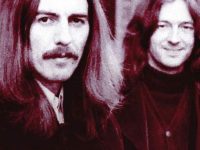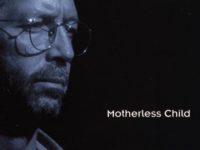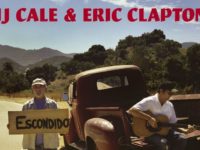Eric Clapton, born on March 30, 1945, apparently lost all interest in the guitar after having struggled mightily with a cheap, steel-stringed 13th birthday gift. Luckily for us, he picked the instrument up again a couple of years later, beginning a journey that would make him the only thrice inducted member of the Rock and Roll Hall of Fame.
Such is his legend that most guitarists would have been thrilled to have had the success and influence that Clapton achieved in the mid-1960s alone, during consecutive stints with the Yardbirds and John Mayall’s Bluesbreakers. Over the next few years, he’d co-found Cream, Blind Faith and Derek and the Dominos — all before turning his focus toward a solo career into the 1970s.
Along the way, Clapton redefined the guitar, helped spark a blues revival, introduced reggae to a wider audience and, in no small way, altered forever the instrumentalist’s role in popular music. Not all of it worked, of course. Still, his successes far outshine his missteps. And that makes selecting five representative songs, even with the help of Clapton collaborators like Bobby Whitlock and Steve Gadd, a nearly impossible task. Best to simply choose a handful of favorites, then …
“BADGE,” CREAM with GEORGE HARRISON (GOODBYE, 1969): An episodic, riddle-filled song that could have been twice as long, and never gotten old, “Badge” was said to have gotten its title when Eric Clapton misread George Harrison’s musical annotation for the track. (He’d scrawled the word “bridge.”) As their friendship grew, each would appear on one another’s albums — with Clapton guesting on “While My Guitar Gently Weeps” on the Beatles’ self-titled so-called White Album in 1968. There was also the business of George’s wife, who was then Eric’s wife. But more on that in a moment.
This time, it’s Beatle George (hilariously credited, for contractual reasons, on the original pressings as “L’Angelo Misterioso”) who provides the riff — echoing a sound that would propel the Beatles’ “Let It Be” and Ringo’s “It Don’t Come Easy.” Clapton soon joins in with a scorching reply, even as he continues blurting out a series of non sequitur lyrics: “I told you about the swans, that they live in the park,” the last of which was said to have come from Starr, in a drunken moment of levity.
There is the sense here, far more than on the often ponderous “Guitar Gently Weeps,” of two musical minds bursting with new ideas. Clapton and Harrison both would launch solo careers in the following months, with Clapton guesting on George’s All Things Must Pass alongside a group of sidemen who would eventually coalesce into Derek and the Dominos.
[SOMETHING ELSE! REWIND: Eric Clapton says that the long, long, long-awaited reunion of Cream in 2005 wasn’t without its grief and stress, and yet he wouldn’t have missed it for the world.]
“MOTHERLESS CHILD,” solo FROM THE CRADLE (1994): There were certainly times where Eric Clapton’s fealty to the originals, not to mention his inability to match the sexually charged vocal intensity of forebears like Howlin’ Wolf and Muddy Waters, turned From the Cradle — his long-awaited throwback studio covers album — into a rote exercise.
But “Motherless Child” isn’t one of them. Presented not as a jangling country blues, but as something far more muscular, this traditional composition by Robert Hicks moves with a stomping sense of determination through every phase of a bad relationship. There’s the apologies for the way his damaged life makes him a bad mate, the dark accusations after an unexplained night out, then the final eruption of anger: “I did more for you than your daddy ever done!”
The brittle rhythm, like his dusty boot was stomping on the floorboard of a front porch, fits in snug amongst the acoustic groove, even as Clapton — finally, blessedly, in a moment that fans have been hoping for since he left Mayall in 1966 — lets the blues overtake him.
[SOMETHING ELSE! REWIND: Remembering Eric Clapton’s legendary 1960s tour through Europe with harmonica ace Sonny Boy Williamson II, the only time the blues icon was recorded live.]
“LAYLA,” with DEREK AND THE DOMINOS (LAYLA AND OTHER ASSORTED LOVE SONGS, 1970): This title track, lest we forget, once wasn’t anywhere near so well known. In fact, the heartbreaking song — Eric Clapton was by then in the throes of an unrequited love for his best friend George Harrison’s wife, Pattie — didn’t become a hit single until nearly two long years later in March 1972, when it went Top 10 in both America and the U.K.
Album-rock stations subsequently began playing both the title track and its piano-driven instrumental conclusion, and the Layla project went on to become one of Clapton’s crowning achievements. And yet Dominos bandmate Bobby Whitlock, whose keyboard and compositional work can be found throughout this searing double album, was never in favor of releasing the song as a two-part composition.
“They had me put the support piano on because even though (Dominos drummer) Jim (Gordon, who composed the coda) could play the actual notes, he was such a precise piano player that it had no feel,” Whitlock tells us, in an exclusive SER Sitdown. “So they had me emulate it and put some feel to it. He had great feel as drummer, but the piano is something else. That coda is against my wishes, anyway. I still don’t think it should have been a part of it. The initial single didn’t have it on it. It was only played once, in the recording of it.”
[SOMETHING ELSE! INTERVIEW: Eric Clapton biographer Chris Welch, a longtime friend, surveys the guitarist’s life and career in the 2012 book ‘Clapton: The Ultimate Illustrated History.’]
“DOUBLE TROUBLE,” solo (JUST ONE NIGHT, 1980): No matter the missteps of his studio albums of the period — and, with all due respect to Slowhand, there were many from the late 1970s through the 1980s (the forgettable “Promises,” the even more forgettable Another Ticket, the synthesizer-laden piffle of “She’s Waiting,” the beer-commercial remix of “After Midnight”) until he finally unplugged again in the early 1990s — Eric Clapton always returned to the blues in concert. And, all was forgiven.
Such is certainly the case here, as Clapton takes an eight-minute excursion through Otis Rush’s ageless down-and-out lament, the initial track on the second album of the 1980 live set Just One Night, perhaps most famous for its scuffed up version of “Cocaine.” As Dave Markee walks down his bass, keyboardist Chris Stainton provides a gurgling platform for some of Clapton’s most expressive singing to that point. When he squalls “I can’t even keep decent clothes to wear!,” it’s with a braying sense of injustice. There then follows more than five minutes of vintage Clapton soloing — fiery, contemplative, smart and then scalding.
It’s a tour-de-force moment, and a reminder that whatever you were hearing on the radio from Clapton at the time (“Rock and Roll Heart”? Really?), he could still summon up the ghosts of blues past — with memorable and stunning results.
[SOMETHING ELSE! REWIND: Fans of Eric Clapton’s 1970s-era solo albums will find much to like about his similarly constructed 2013 release ‘Old Sock,’ right down to its reggaefied asides.]
“PILGRIM,” solo (PILGRIM, 1998): Eric Clapton’s first album of original material since 1989’s Journeyman found the guitarist delving into distinctly modern R&B grooves, deeply emotional themes and the previously unexplored upper register of his voice — all just ahead of Steve Gadd’s driving rhythms. The results, in particular on the title track from Pilgrim, amount to the most intimate, starkly honest music Clapton had issued since Layla.
Both in texture and approach, it sounded nothing like Clapton’s previous personas as comfy 1990s acoustic-blues throwback, perfectly coifed 1980s MOR rocker, calm and collected 1970s balladeer or frenzied 1960s rock experimentalist. So, of course, Pilgrim tanked. It’s worth another listen, however, if only to listen as co-producer Simon Climie helps the ever-restless Clapton toward a new vocal style, one that had less to do with Muddy Waters than it did Al Green.
“It’s not an accident that he’s as successful as he is,” Gadd, who has recorded and toured with Clapton off and on since 1994, tells us. “He plays 100 percent, 110 percent. His singing is unbelievable. He’s constantly listening to different things, and trying different things, and bringing different people in and out of the band. He’s constantly growing.”
With “Pilgrim,” Clapton offered his most shatteringly raw vocal work yet. In that way, it actually goes deeper than Unplugged and that 1994 covers album could have imagined — traveling in a brilliant way past poignancy into true sorrow. Despite the synthesized feel, this might just be Clapton’s truest, best blues record.
- How Deep Cuts on ‘Music From Big Pink’ Underscore the Band’s Triumph - July 31, 2023
- How ‘Islands’ Signaled the Sad End of the Band’s Five-Man Edition - March 15, 2022
- The Band’s ‘Christmas Must Be Tonight’ Remains an Unjustly Overlooked Holiday Classic - December 25, 2016




